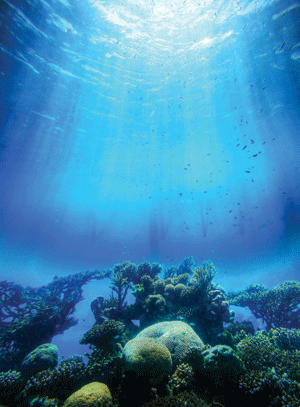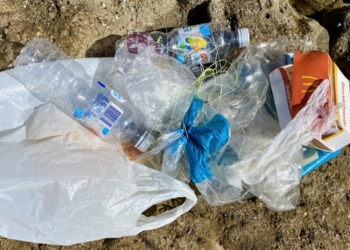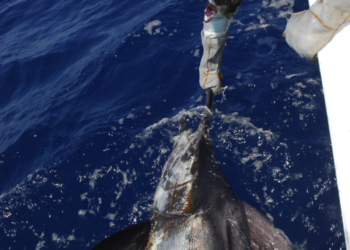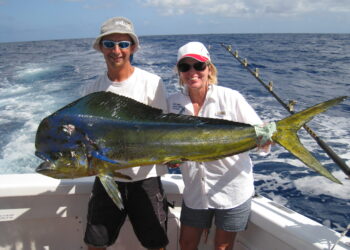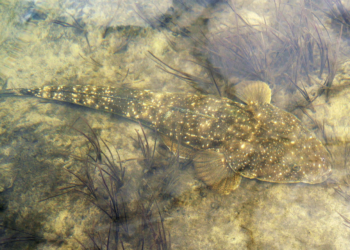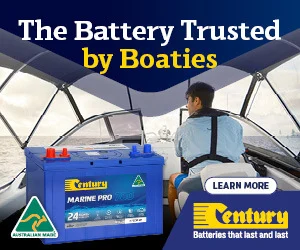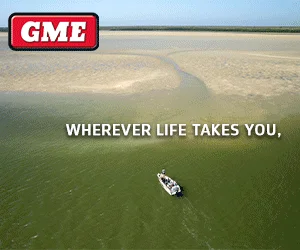Politics, Science & Fishing
As promised, here’s an expert explanation of the politics and science being used in the marine parks debate.
The Science
THE science behind the establishment of no-take zones in marine protected areas (MPAs) originated from work done in temperate ecosystems and coral reefs mainly in the Northern Hemisphere.
The ecosystems under study were generally affected by heavy fishing pressure as well as other significant environmental problems, such as pollution. The move towards area management by establishing no-take zones was part of an ecosystem based management approach that was trialled based on the belief that conventional fisheries management had not worked (or was non-existent) in many areas of the world and that marine parks with “no take” zones in them were a solution that could help repair damaged ecosystems and rebuild fish stocks.
Most of these studies are characterised by scientists measuring changes to populations of selected fish and invertebrates inside and outside the no-take areas – sometimes (but not always) finding positive changes when investigating the fish and invertebrates targeted by commercial and recreational fishers that spent their entire lives inside the no-take zone.
On the other hand, there is little, if any, evidence that shows that no-take zones effectively enhance populations of highly migratory species. So-called “spillover effects”, where the fish and invertebrates in the protected zone help repopulate areas outside the zone through dispersal of planktonic larvae via currents, were suggested to occur in theory, but this does not seem to be universal in practice. Indeed, over the years it has become clear that many other environmental factors besides fishing influence the ability of MPAs to protect fish stocks, maintain biodiversity and repopulate adjacent areas.
Unfortunately, if the subject is critically analysed, much of the available science simply demonstrates that “no fishing” occurs in no fishing zones (not exactly earth shattering stuff), and that in many instances “no take” zones, by virtue of poor design or location, provide little if anything in the way of tangible environmental benefits for several reasons discussed in more detail below.
The unprecedented rush to establish MPAs and “no take” zones throughout Australian waters in the past 10 years or so has been based on this increasing emphasis on “protection of biodiversity” through “ecosystem management” through “comprehensive representative networks” of MPAs.
The various governments involved have committed to rolling out MPA networks throughout the entire country, which means they had to extrapolate results from science done in different ecosystems and sometimes from different parts of the world.
This is where the use of science gets a little murky. Once committed to establishing marine parks, governments found it necessary to justify the process by stating that their actions were based on sound scientific data.
But for the many new ecosystems now being considered for marine parks, scientific data were simply not available.
In other cases, for example in the sub-tropical mangrove-lined estuaries in the Moreton Bay Marine Park in Queensland, the available scientific studies showed that well managed recreational fishing and the gear used for recreational fishing did not have any significant influence on biodiversity or fish populations.
In a well publicised study done in Moreton Bay, the area with highest species biodiversity was the recreational–only fishing area in Pumicestone Passage. Yep, the zone allowing recreational fishing had even higher species diversity than zones where no fishing was allowed! Recreational fishing did not effect biodiversity – how could this be so?
Indeed, it is a well known scientifically defensible fact that every estuary emptying into Moreton Bay has been adversely affected by poor water quality originating from catchment development and both point source (nutrients from sewage outfalls) and non-point source pollution (hydrocarbons, pesticides and herbicides from run-off from adjacent urban areas and agricultural land).
In the face of these insults, the scientific evidence suggests that effects of recreational fishing on biodiversity in inshore areas of Moreton Bay pales into insignificance. Clearly, recovery of damaged ecosystems and fish stocks back towards historic baselines in Moreton Bay will be impossible, even if 100 per cent of the area was closed to recreational fishing, unless the real underlying environmental causes of the decline are addressed.
The situation in coral reef areas is a little different. There has been a lot of pressure recently from green groups to close the entire Coral Sea to all fishing. There are some scientific studies done in the Northern Hemisphere that show fishing closures have helped certain coral reefs recover from algal overgrowth events.
Unfortunately, what has not been well publicised is the fact that the coral reefs in those studies were heavily degraded by a combination of nutrient loading from adjacent human settlements together with overfishing of herbivorous fishes by subsistence fishers. The herbivorous fishes helped control algal growth stimulated by the extra nutrients, so when the fish were removed by fishers using spears, traps (and in some parts of the world, destructive fishing practices such as cyanide, explosives etc.), the reefs suffered as a result.
Closing coral reefs exposed to these sorts of fishing insults clearly is beneficial, and the science shows that recovery can begin once the uncontrolled and/or destructive fishing stops. But for the offshore reefs in Commonwealth waters in the Coral Sea that are not exposed to these insults in the first place, is there a need for fishing closures at all?
On the other hand, for inshore coral reefs out to around 40km off the Queensland coast, there is undeniable scientific evidence that the reefs are being severely degraded by nutrients, pesticides and herbicides from runoff from the mainland. The degradation seems to occur regardless of whether the offshore reefs are closed to fishing or not.
Interestingly, the Queensland Government was quick to act to try and reduce water quality impacts on inshore coral reefs, but appears to be slow in accepting the same nutrients and pollutants also affect the aquatic flora and fauna of our rivers and estuaries (remember the ongoing saga regarding the multiple headed fish larvae in the Noosa River?).
Certainly it is a scientifically proven fact that fishing closures do not protect coral reefs from nutrient loading, coral disease, coral bleaching or ocean acidification from build-up of atmospheric CO2. Local examples include the huge declines in coral cover inside the Coringa Herald and Lihou Reef National Nature reserves, ironically both located in the Coral Sea and both closed to all fishing for over 25 years. The available empirical scientific evidence therefore shows no relationship between fishing and bleaching damage to coral reefs in the Coral Sea.
Of course, this has not stopped green groups, notably the Pew Charitable Trust, in their misson to try to get the entire Coral Sea closed to all fishing. Indeed, the reluctance of certain interest groups to discriminate between commercial, subsistence and recreational fishing is a typical characteristic of the MPA debate, despite the fact that the gear used and the motivations of each of these three fishing groups are entirely different. The scientific evidence shows that commercial fishing practices (netting, trawling, long lining) can be very destructive in many ecosystems unless very closely managed, while unconstrained subsistence fishing can be just as problematic, especially in third world areas where growing human populations are stripping coral reefs bare in the face of limited or nonexistent fisheries regulations. Recreational line fishing is not benign, but there is plenty of scientific evidence to show it can be a completely sustainable source of economic activity if well managed, and particularly if catch & release principles are embraced.
The existence of catch & release sportfisheries in areas otherwise completely closed to all extractive activities in MPAs like the US jurisdiction of Palmyra Atoll is evidence that this can happen, provided the governments involved are able to appraise the scientific information available in an even handed manner.
The human dimensions of establishing MPAs have also been studied by social scientists, who find that recreational anglers are usually very open to tightening of regulations to conserve marine environments, protect endangered fishes and so on, as long as there is a scientific basis to the restrictions, and that responsibility for improving the situation is shared amongst all stakeholders.
Simply eliminating recreational angler access to certain areas represents a discriminatory unilateral approach to management that the social scientists point out should be avoided because it can induce considerable opposition which can potentially undermine the entire conservation program.
My personal view is that it seems certain green groups have become philosophically opposed to fishing in any way shape or form, and are unable to discriminate between commercial, subsistence and recreational fishing.
Because of this, the process of establishing MPAs has become highly politicised, which is logical when you consider that the final decisions are made by politicians. Under these circumstances, what the science shows becomes virtually irrelevant, which is a shame, as the debate could be better informed if sound scientific principles are used, and not abused.
Ben Diggles,
PhD.

Dr Ben Diggles has been Fishing World’s Marine Biology Editor since 1997.
The Political Perspective
BEN’S last paragraph on science “virtually irrelevant” due to the political aspects of the MPA issue is a good place to start these observations. We … and by that I mean Fisho’s writers and readers …live in a bit of a naïve bubble at times. We spend lots of time on or next to the water and observe keenly what’s occurring in the marine environment we love. We often can’t understand why political decision makers removed from “our world” routinely ignore what we see as pretty self evident, for example, that carefully released fish generally survive and that highly mobile pelagic species don’t benefit much at all from small no-take zones.
I’d suggest that part of the reason for this non-understanding is us not accepting that politicians and political decisions are not driven solely by logic or scientific proof.
Politicians generally want to keep the majority of stakeholders happy and to stay in government. “Stakeholders” in this case are the citizens of Australia who are entitled to vote. So what do these stakeholders think about rec fishing and marine conservation, and what does that mean for political decision making and the future of our sport?

Consider the following propositions:
• Some people (us) think rec fishing is a legitimate, healthy activity; but some don’t … they see it as a cruel sport. All that speculation on “do fish feel pain” confuses people.
• Some non-anglers understand C&R and approve of it; but some still think all fish die as a result of being hooked. I’m constantly amazed that many well educated non-anglers believe this, despite all the fisheries management agency studies on survival rates … plus the fairly obvious fact there aren’t dead fish bobbing up everywhere.
•Some only support catching fish to eat, not for sport. It’s interesting that many green groups are more philosophically at ease with commercial fishing than with recreational.
•Some uncritically think that establishing lots of MPAs will somehow “save” fish populations; others just think MPAs are “a good thing” and just support them generally, like they support terrestrial national parks.
•Some think Australia should conform to international trends, treaties and obligations on marine conservation irrespective of whether our MPAs can be scientifically demonstrated to achieve very much. They think Australia has to demonstrate it is a responsible member of the “family of nations” in this regard, as it does with trade in endangered species or carbon emission reduction.
•Some want to eat Australian-sourced fish; some don’t care and wouldn’t know what they’re eating; some would select sustainable species … many wouldn’t care. There’s still plenty of marlin and swordfish in fish markets and on restaurant menus despite “buy sustainable species” campaigns. The commercial sector is better at lobbying than us … look at some of the subtle anti-aquaculture campaigns against farmed kingfish, which taste far better than wild caught.
•Some fisheries scientists are truly independent; some are funded by specific interest groups. How’s a politician to determine if “our” scientists are better than “their” scientists (with the exception, of course, of Dr Diggles)?
•Some advocates are zealots, either in conservation, animal rights or dare I say it “fishing rights” terms; logic doesn’t apply … positions are dictated by faith or belief. Think of Pew and its stated no-negotiation stance; think of those ridiculous PETA “sea kitten” campaigns.

What links this broad church of people with their widely differing views together is that they all vote. So environment, fisheries and planning ministers at federal and state or territory levels of government have to keep one eye on the substantive issues and one on what public opinion polls are telling them, if they want to stay in power … which most do. While some politicians will make courageous or unpopular decisions based on their values, others are totally poll driven and will do whatever it takes to hold on to power or advance up the ministerial tree. Their decisions on MPAs and related matters will be based on a broad range of issues, not just scientific proof.
At the time of writing, the federal Labor government has just dropped 14 per cent in approval rating over its handling of the refugee question. The polls don’t tell us whether that 14 per cent think they’re being too soft or too hard … it could even be 50/50 … but the upshot is that a loss of support that big could tip them out of office if carried through to an election.
Marine conservation might be similar. We don’t know the true national level of support for MPAs and no-take zones because we’re basically all fishermen with our own strongly held views and opinions. So just criticising or questioning every aspect of or decision on these matters we don’t like will, I predict, get us precisely nowhere with politicians … unless we can demonstrate 60 per cent + voter support for a position.
If I was the tackle industry or a representative fishing body, I’d be putting research and educative dollars into programs aimed at the general population to debunk some Green group and animal rights myths. But there’s a political risk. If, after those efforts, 60 per cent + of voters still supported more MPAs and no-take zones, then I’d suggest it’d be “game over” on these issues for our side.
John Newbery,
BA Hons (Political Science).
John Newbery has been Fisho’s Environment Editor for 15 years.





